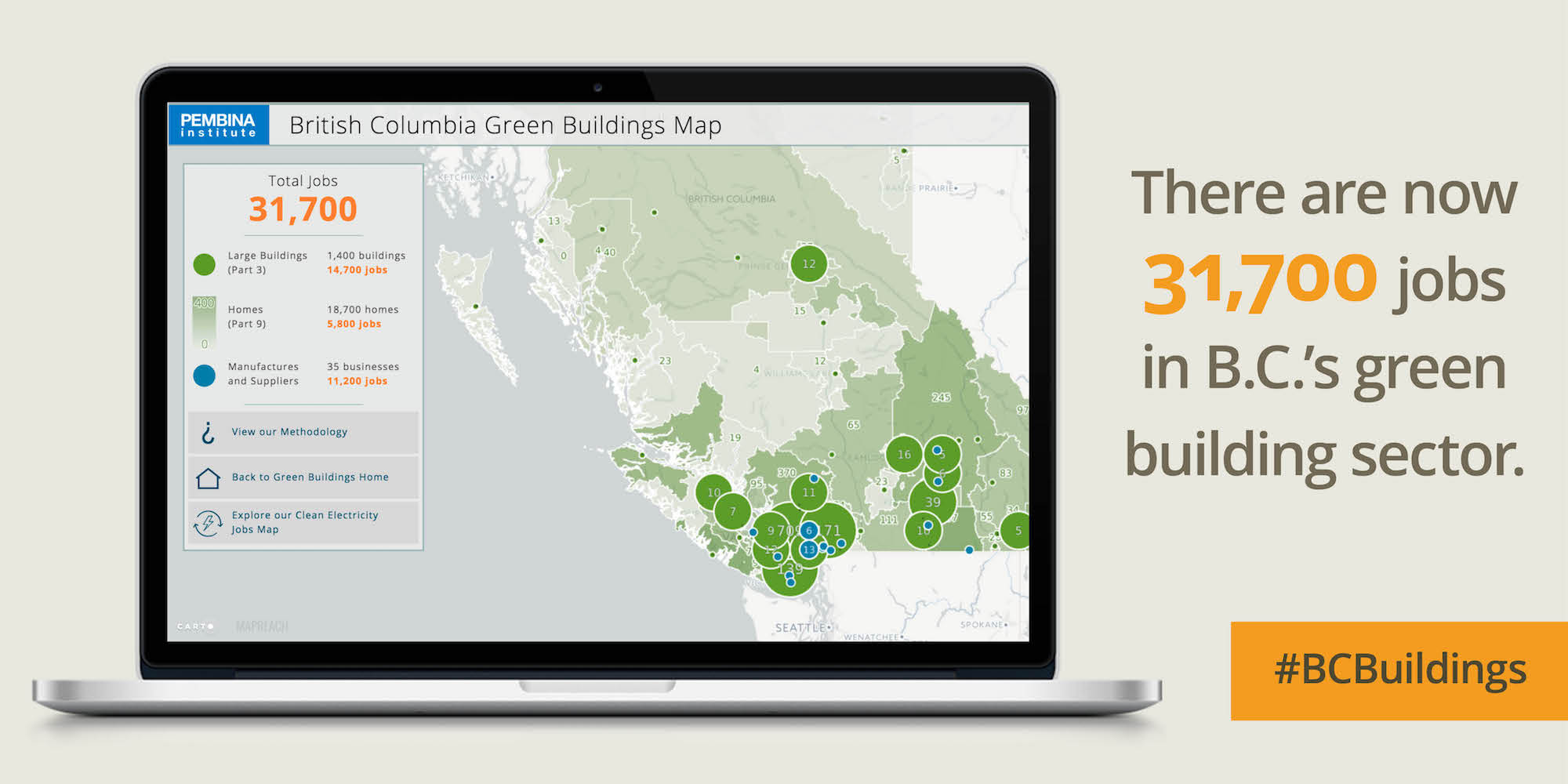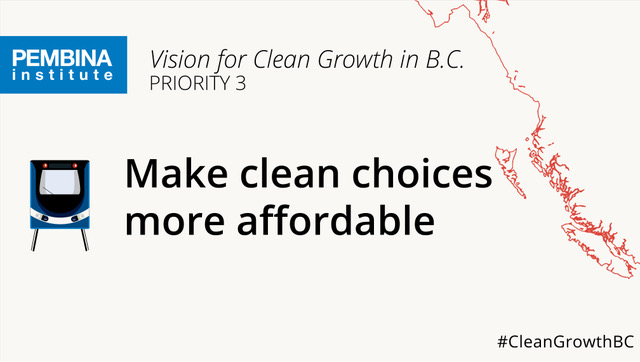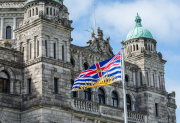Under past premier Christy Clark, the British Columbia government gave a panel of business, academic, civil society, government, and First Nations leaders a daunting task: come to consensus on a path to maintain our climate leadership, achieve our targets for curbing carbon pollution, and grow the economy.
Admirably, the Climate Leadership Team did just that, submitting a strong package of recommendations in 2015 that would have put B.C. back on track to its climate targets. Unfortunately, the provincial government of the day chose to ignore the team’s expert advice, releasing a weak climate plan in 2016 that was widely panned as economically and environmentally ineffective. Following this disappointment, the Pembina Institute laid out five priorities for clean growth: position B.C. to be competitive in the changing global economy, make clean choices more affordable, support healthy and safe communities, build a strong clean tech sector, and grow sustainable resource jobs.
Fast-forward one year, and we have new government, a newly announced Climate Solutions and Clean Growth Advisory Council, and the promise of a new climate strategy. Once again, the Pembina Institute has been asked to lend its clean energy insight and expertise to the panel, and has accepted the invitation.
It’s not often one gets a do-over. However, B.C. has no time to waste. In the two years since the Climate Leadership Team filed its report, we have lost precious time to act on carbon pollution, other jurisdictions have leapfrogged us with ambitious climate policies, and the world’s transition to a low-carbon economy has picked up steam.
Our expectations are high for B.C.’s next climate plan, because of what the government has said on the record. Premier John Horgan’s mandate letter to Minister of Environment and Climate Change Strategy George Heyman calls for a “comprehensive climate-action strategy that provides a pathway for B.C. to prosper economically while meeting carbon pollution reduction targets, including setting a new legislated 2030 reduction target and establishing separate sectoral reduction targets and plans.”
In September, the throne speech promised: “Your government will take decisive action on global climate change, the greatest challenge of our generation. We must do everything we can to reduce emissions and keep global temperature increases below 2 degrees. Together we will fight climate pollution and create opportunities for people, including thousands of jobs through energy retrofits and public infrastructure.”
Encouragingly, the B.C. government has already made good on one key climate commitment, contained in the NDP–Green confidence and supply agreement. September’s budget update announced the strengthening of B.C.’s tax on carbon pollution by $5 per tonne (to $35 per tonne) as of April 1, 2018. This positive move ends the carbon tax freeze announced by Clark back in 2013. In her budget speech, Finance Minister Carole James pledged to “carve out a new path” where “addressing climate action is a tool for long term sustainable growth and jobs in every corner of our province.”
This new path should include strong climate policies that will reduce carbon pollution from B.C.’s building, transportation, and industrial sectors. Such policies are key to securing B.C.’s economic prosperity as the world rapidly shifts to a clean economy. Indeed, we know that ambitious climate action opens the door to clean growth and benefits British Columbians.
For instance, B.C.’s clean tech sector earned $1.8 billion in revenue in 2016, up 20% from 2014. There are 31,700 jobs in B.C.’s green building sector, and renewable energy projects employ over 14,000 people in B.C. In addition, energy-efficient homes and buildings provide more comfortable and healthier spaces in which to live and work, fetch higher resale values, and can lower energy bills by more than 50%.
With representation from First Nations, industry, labour, academia, civil society, and local governments, the Climate Solutions and Clean Growth Advisory Council is well placed to point the province in the right direction. The solid work of the previous Climate Leadership Team won’t go to waste, as the new council’s mandate includes advising the government on implementing the team’s recommendations.
It’s time to roll up our sleeves and get to work on building B.C.’s clean growth future. The world is moving forward with climate action. Let’s do our part — and reap the benefits too.
Karen Tam Wu is the acting B.C. director at the Pembina Institute and a member of B.C.’s new Climate Solutions and Clean Growth Advisory Council.
Maximilian Kniewasser is the director of the B.C. Climate Policy Program at the Pembina Institute, Canada’s leading clean energy think-tank.
This op-ed originally appeared in the Vancouver Sun on October 24, 2017.









